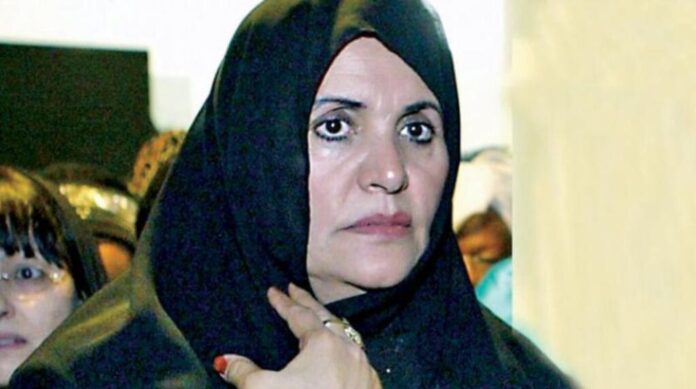The United Nations has lifted the travel ban on Safia Farkash Al-Barassi, the widow of the late Libyan leader Muammar Gaddafi.
The decision, announced in a press release last Wednesday, marks a notable shift in the restrictions imposed on individuals associated with the former regime in Libya.
The UN Security Council Committee, established pursuant to resolution 1970 (2011) concerning Libya, made the decision to remove Al-Barassi from the travel ban list.
This measure had been imposed in the aftermath of the 2011 Libyan civil war, which led to the overthrow of Muammar Gaddafi’s regime.
Al-Barassi had been subjected to the travel ban since 24 June 2011, primarily due to her marital relation to Gaddafi and her perceived significant personal wealth, which was believed to have the potential for use in support of the former regime’s purposes, according to the UN resolution.
However, despite lifting the travel ban, Al-Barassi remains subject to the asset freeze measure imposed by the UN. This aspect of the restrictions underscores the continued scrutiny of her financial assets and resources.
The decision to remove Al-Barassi from the travel ban list suggests a reevaluation of her status by the UN Security Council Committee.
It may also reflect changing perceptions regarding her role and influence within the context of Libya’s post-Gaddafi political landscape.
The lifting of the travel ban could potentially afford Al-Barassi greater freedom of movement and participation in international activities.
It may also facilitate her engagement in diplomatic or humanitarian efforts, although the extent of her involvement in such endeavours remains to be seen.
The decision is likely to provoke varied reactions within Libya and the international community.
While some may view it as a step towards reconciliation and normalization, others may express concerns about the implications of easing restrictions on individuals associated with the former regime.
Overall, the removal of Safia Farkash Al-Barassi from the travel ban list signifies a significant development in the ongoing efforts to address the legacy of the Gaddafi era and navigate Libya’s complex post-conflict dynamics.
As the country continues its journey towards stability and democratic governance, the UN’s decision regarding Al-Barassi underscores the complexities involved in reconciling the past with the aspirations for a peaceful and prosperous future.
This article war created using automation technology and was thoroughly edited and fact-checked by one of our editorial staff members

